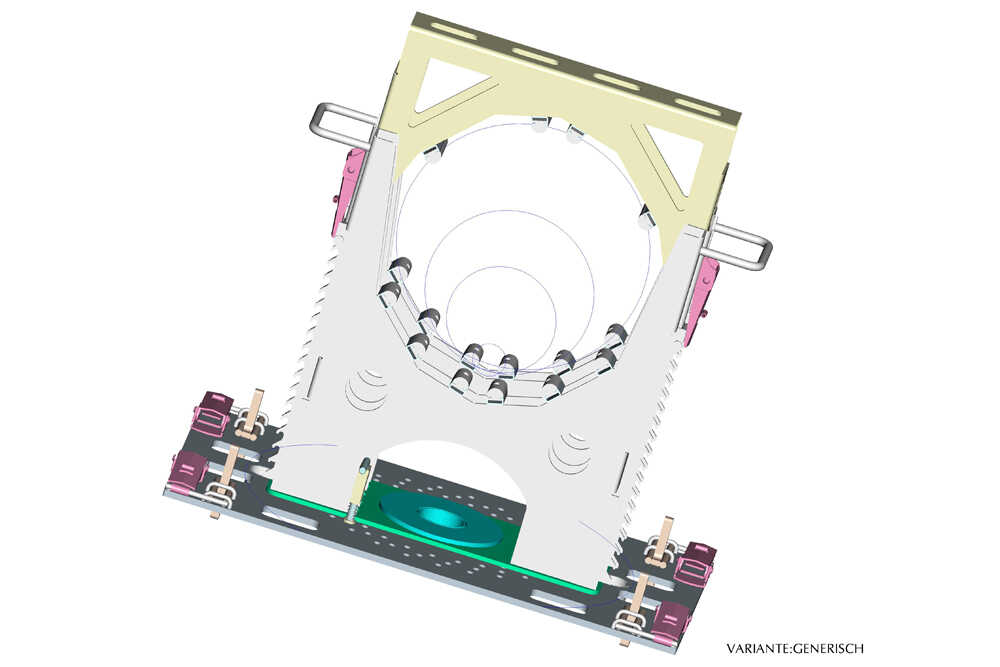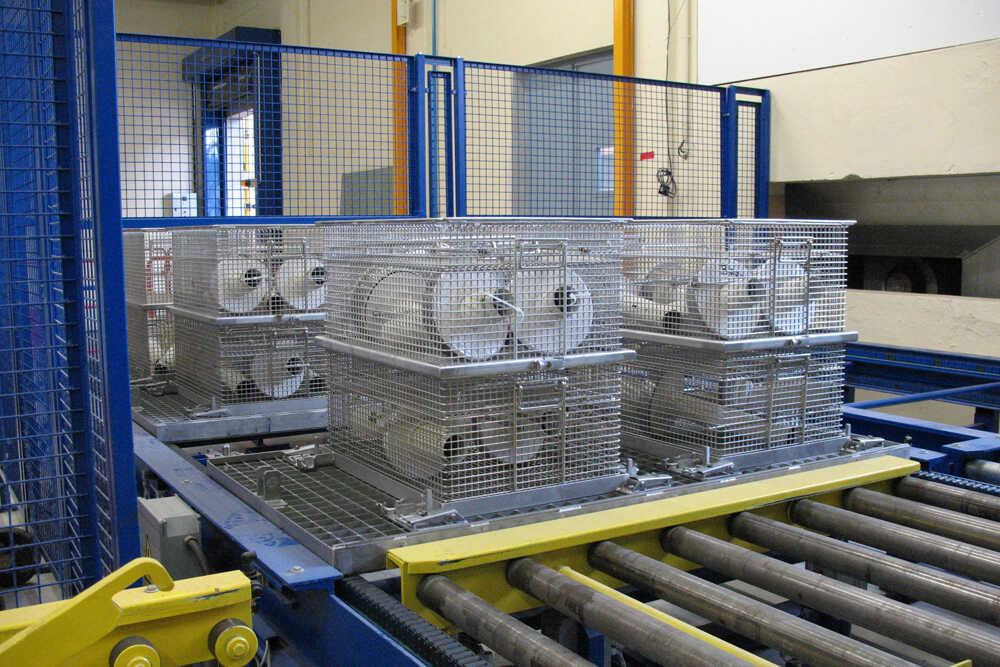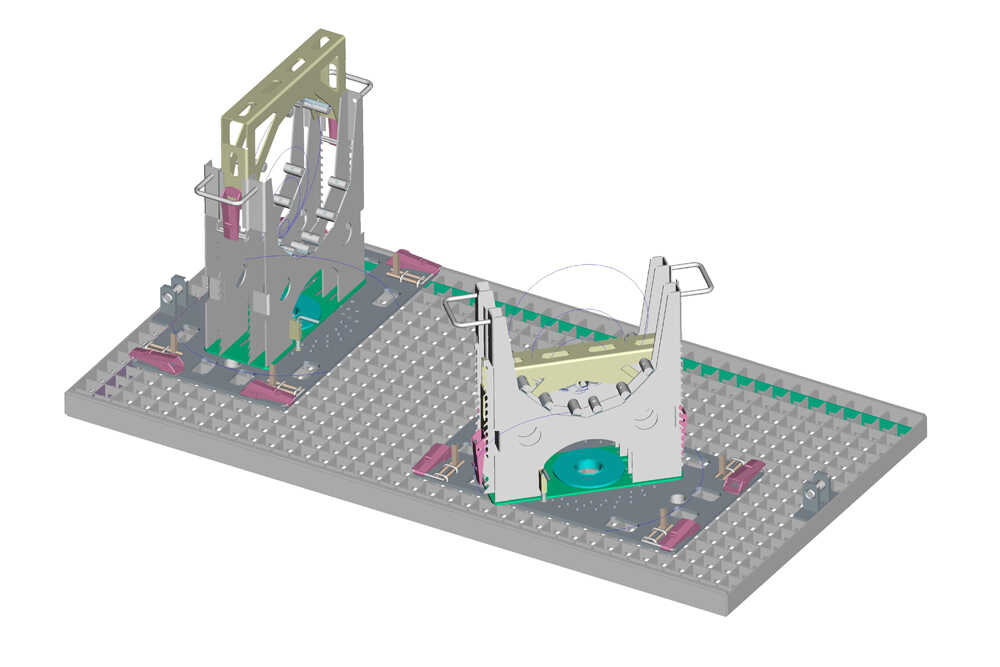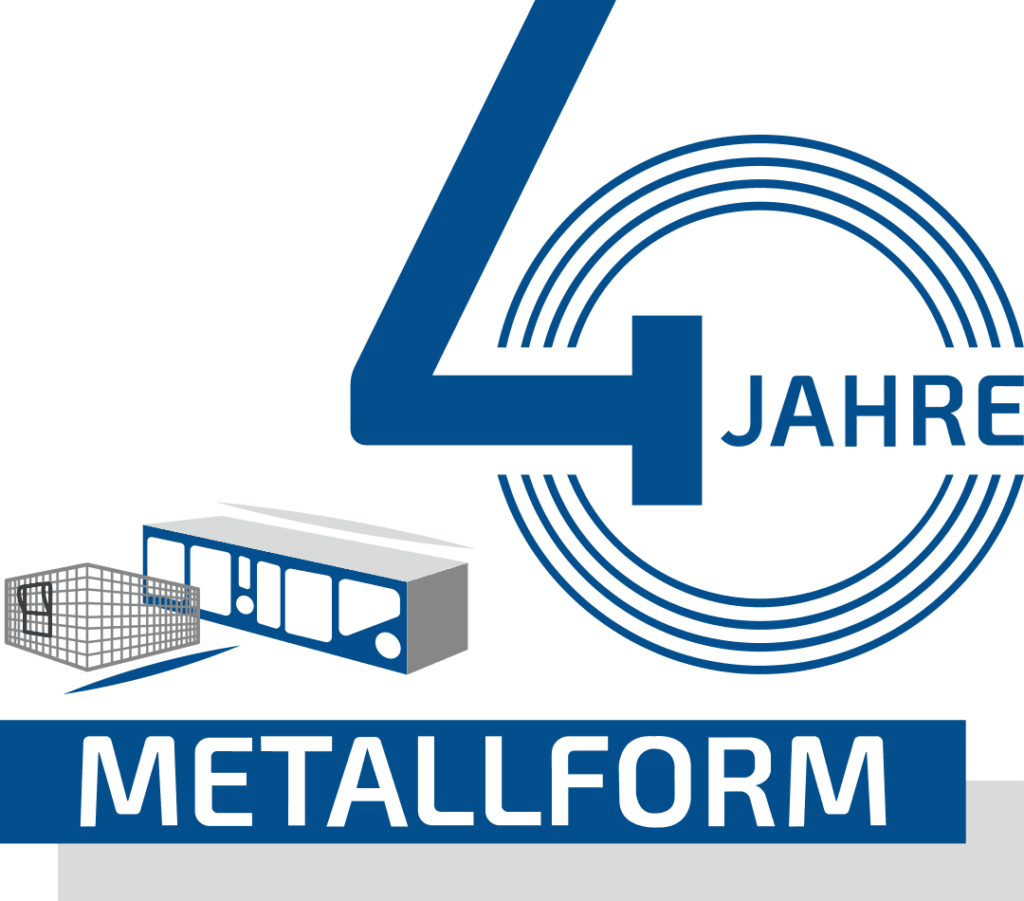Cleaning and paint stripping play an essential role in the maintenance and repair of aircraft landing systems. Messier Services has invested in new, environmentally friendly processes for these operations. This also necessitated the development of a basket system that can be used for all of the more than 1,000 parts to be cleaned, which vary in size and geometry, while offering maximum safety in the processes.
Messier Service France, a Safran Group company, specializes in the maintenance and repair of landing skids and related hydraulic components. Customers of the globally active MRO specialist include private aviation companies as well as the military. At its Molsheim plant, the company has invested in new processes for degreasing and paint stripping of landing gear components. The aim was to work in a much more environmentally friendly way. We have therefore switched to aqueous systems for cleaning, reports Francis Schnepp, investment coordinator at Messier. In the new system, the parts are rotated. This movement of parts is necessary to achieve an optimal cleaning result within a short time. However, this also necessitated the investment in a new basket system in which or on which the workpieces can be securely fastened and are not damaged. Since degreasing and paint stripping are carried out in the flow of the repair, we needed a modular system that can be adapted very quickly to the different parts and still offers maximum safety, continues the investment coordinator.

One workpiece carrier system
for all parts
The great challenge in designing the cleaning basket was the large variety of over 1,000 parts, which differ greatly in geometry and size. In addition to high flexibility, the other important criteria were safety, ergonomics, and short loading and unloading times. The maximum size of the basket was also specified. With this catalog of requirements, Messier turned to METALLFORM Wächter GmbH in Bretten, Germany, which had already developed and manufactured product carriers for another Safran Group company.
The solution: A basic pallet and various fastening tools
The METALLFORM design team then took a look at the huge range of parts during a visit to the Molsheim plant. However, we were unable to provide concrete data on the various workpieces, says Francis Schnepp. On this basis, the specialist for cleaning baskets developed a 1200 x 600 mm basic platform. Thanks to a grid pattern with a spacing of 40 x 40 mm, the parts can be placed on it as desired and fixed in any position. With the help of CAD, it was possible to simulate the movement of the pallet with various parts in the cleaning system. This revealed which forces occur during the process and how they affect the workpieces. Based on these findings, METALLFORM designed different fastening tools such as prism tool holders, quick clamps and angle fixings. Among other things, the prism toolholder can be used to fasten tubular parts in the diameter range from approximately 80 to 300 mm. In order to also securely fix curved tubes to the platform, this tool has an additional bearing. It allows the prism to be rotated in the direction of the curvature after it has been fixed to the pallet. As a result, the part is completely flushed outside and inside in the cleaning process. The angular fixings prevent transverse forces from acting on the part and displacing it as it rotates. METALLFORM has really put a lot of know-how and development work into this solution, praises Francis Schnepp.

Minimal contact points ensure
for optimum results
The designers at METALLFORM paid particular attention to minimizing the contact surfaces between the workpieces and the platform as well as the fastening tools. This is because every contact point carries the risk that contamination or cleaning agent will adhere to the part or that the parts at the contact points will not be completely degreased or paint stripped or dried, which can impair subsequent work steps such as crack detection. To avoid direct metal-to-metal contact, the contact points are encased in Telfon clips. This component protection offers significant advantages over complete coating with Teflon. On the one hand, the Teflon clips allow highly flexible component protection as required. On the other hand, they can be easily replaced if the clip is damaged, explains Francis Schnepp.

Standard baskets
for smaller components
For smaller components, Messier opted for the standard baskets of the MEFO-BOX system. It consists of a large number of coordinated components that can be combined as desired. The parts are fixed in the baskets with special fastening elements of the system. In order to make optimum use of the capacity of the cleaning system, up to four baskets can be fastened to one basic platform. Both the base platforms and fastening tools and the standard baskets are made of stainless steel with an electropolished surface. The high-quality material ensures a long service life of the workpiece carriers and excludes back contamination from the cleaning basket onto the component as well as contamination of the baths by corrosion and zinc deposits.

